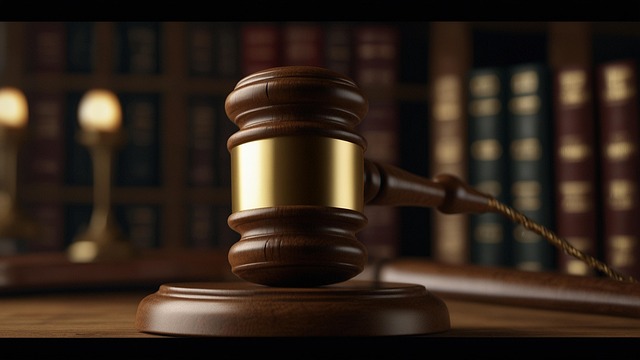The Criminal Procedure Appeal Process Explained is a critical component in securing justice for environmental crimes, including pollution, deforestation, illegal wildlife trade, and climate change offenses. This process allows for a thorough review of evidence and legal arguments, enabling the dismissal of charges if errors are found. Environmental crime trials require a deep understanding of criminal intent and specialized legal expertise to navigate complex regulations and present robust evidence, such as financial records analysis and behavior patterns. The appeal process not only corrects legal errors but also sets precedents for future cases, emphasizing accountability and environmental protection on a global scale. Advanced data analytics and digital evidence will play an increasingly important role in these trials.
“Environmental Crime Trials: Uncovering the Legal Fight for Earth’s Protection”
In recent years, environmental crimes have come into sharper focus, prompting a closer examination of legal strategies to combat these offenses. This article delves into the intricate world of environmental justice trials, exploring key aspects of criminal procedure and its impact on these cases. From understanding the legal landscape to navigating the appeal process, we dissect critical elements that shape outcomes. Additionally, global perspectives offer insights into future trends, highlighting the evolving fight against environmental criminals, with a special focus on criminal procedure appeal process explained.
- Understanding Environmental Crimes: A Glimpse into the Legal Landscape
- The Role of Criminal Procedure in Environmental Cases
- Key Elements of an Environmental Crime Trial
- Appealing Environmental Crime Convictions: Navigating the Process
- International Perspectives and Future Trends in Environmental Justice Trials
Understanding Environmental Crimes: A Glimpse into the Legal Landscape

Environmental crimes, a growing concern globally, encompass a range of illicit activities that cause significant harm to our planet. These include pollution, deforestation, illegal wildlife trade, and climate change-related offenses. Understanding these crimes within the legal framework is essential for both deterrence and justice. The criminal procedure appeal process plays a crucial role in ensuring fairness and accuracy in environmental cases.
The legal landscape surrounding environmental crimes is complex, with specific laws and regulations designed to protect ecosystems and public health. When charged with such offenses, individuals often turn to specialized white-collar defense teams or general criminal defense attorneys who possess expertise in navigating these intricate legal matters. The appeal process provides an avenue for review, allowing for the potential complete dismissal of all charges if found to be based on faulty interpretations or procedural errors.
The Role of Criminal Procedure in Environmental Cases

In Environmental Crime Trials, understanding the role of criminal procedure is paramount. The Criminal Procedure Appeal Process Explained plays a pivotal role in ensuring fairness and justice for all parties involved. For his clients, navigating this process can mean the difference between an unjust indictment and achieving extraordinary results. It involves a series of strict steps designed to protect both the rights of the accused and the integrity of the environment.
By adhering to these procedures, courts can thoroughly examine evidence, assess legal arguments, and make informed decisions. This meticulous approach helps in avoiding indictment where it’s warranted, ensuring that environmental crimes are punished proportionately. The process encourages a balanced approach, where the interests of justice and environmental preservation coexist, ultimately leading to more sustainable outcomes for communities and ecosystems alike.
Key Elements of an Environmental Crime Trial

Environmental Crime Trials are complex legal battles that demand a meticulous understanding of various key elements. One of the primary aspects involves establishing the criminal intent behind the environmental violation. Unlike traditional trials, these cases often hinge on demonstrating willful neglect or conscious disregard for environmental regulations. The criminal procedure appeal process plays a pivotal role here, ensuring that the rights of all parties are protected and any legal errors are rectified.
A successful prosecution requires presenting compelling evidence to prove that the accused entity or individual was engaged in activities causing significant harm to the environment. This includes examining financial records, examining patterns of behavior, and delving into the decision-making processes within corporations, especially in white collar defense scenarios. The involvement of philanthropic and political communities can also be a crucial factor, as they often serve as watchdogs, highlighting environmental issues and pushing for accountability. These trials demand an unprecedented track record of legal expertise to navigate through complex regulations and evidence, ultimately ensuring justice for environmental crimes.
Appealing Environmental Crime Convictions: Navigating the Process

Navigating the Criminal Procedure Appeal Process for Environmental Crimes
When it comes to environmental crime trials, ensuring justice and accountability is paramount. Those convicted may choose to appeal their case, following a structured legal process. The Criminal Procedure Appeal Process Explained involves careful consideration of evidence, legal arguments, and previous rulings. It’s crucial to understand that appealing environmental crime convictions is not just about correcting errors but also achieving extraordinary results for the greater good.
Across the country, various courts handle such appeals, each with its own set of rules and guidelines. The process begins with a notice of appeal, followed by legal briefs detailing reasons for reversal. If successful, the ruling can set precedents, impacting not just individual cases but also how white collar and economic crimes are prosecuted and prevented in the future.
International Perspectives and Future Trends in Environmental Justice Trials

Environmental crime trials are gaining international attention as nations around the world recognize the need for justice and accountability in protecting our planet. With a growing emphasis on environmental sustainability, countries are adopting innovative legal strategies to address high-stakes cases involving pollution, deforestation, and climate change. These trials present unique challenges, particularly in terms of proving liability and assessing damages, especially when multinational corporations or government entities are involved.
Looking ahead, the future of environmental justice trials promises significant developments. Advanced data analytics and digital evidence will play a pivotal role, helping to construct robust cases and presenting compelling arguments before courts. As the legal landscape evolves, professionals with expertise in both environmental science and criminal procedure appeal processes will be invaluable. With an unprecedented track record of winning challenging defense verdicts, these trials are not only ensuring accountability but also setting new standards for environmental protection globally.
Environmental crime trials play a pivotal role in upholding ecological balance and ensuring environmental justice. By understanding the legal landscape, adhering to robust criminal procedure, and meticulously presenting key elements, these trials can deliver effective outcomes. For those facing or appealing convictions, navigating the appeal process—a critical component of the Criminal Procedure Appeal Process Explained—is essential for seeking fairness and potential reversal. International perspectives highlight the growing global recognition of environmental justice, suggesting a promising future for these trials in addressing ecological challenges.






